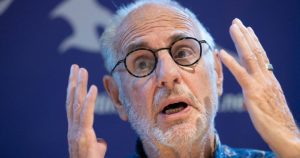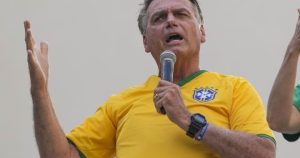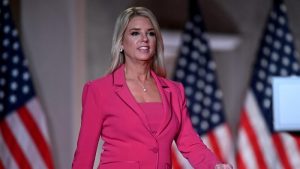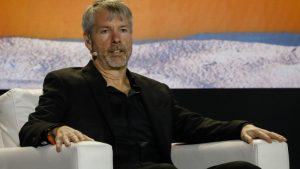German defence minister clears way for Scholz to lead SPD into elections
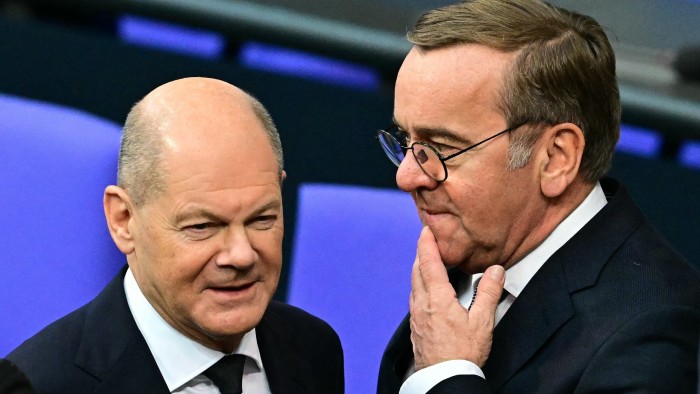
Stay informed with free updates
Simply sign up to the German politics myFT Digest — delivered directly to your inbox.
German defence minister Boris Pistorius has bowed out of the running to be his party’s top candidate for upcoming elections, ending weeks of speculation that he could replace Chancellor Olaf Scholz.
In a video message posted by his Social Democratic party (SPD) on Thursday evening, Pistorius said the public debate was damaging the party and, as a result, he had informed its leadership that he was not available for the job.
“Olaf Scholz is a strong chancellor and he is the right candidate for chancellor,” he said, adding the party leader stood for “reason and prudence”.
He said: “We now have a joint responsibility to bring this debate to an end. Because there is a lot at stake.”
When Scholz triggered snap elections two weeks ago, as the incumbent chancellor he was expected to automatically become the party’s candidate. But a de facto race was triggered after many polls showed that Pistorius, who has served as defence minister since the start of last year, was the country’s most popular politician.
Scholz, by contrast, had one of the worst approval ratings, with voters blaming him for the months of bickering that had paralysed his three-way coalition until its implosion earlier this month.
Against that backdrop, the party was engulfed by growing calls from within its ranks to perform a last-minute change of candidate in a bid to save it from a feared electoral rout.
But the central party leadership stood by Scholz, and Pistorius was facing growing criticism from some in the SPD for failing to quash the speculation.
In his video message the defence minister said the debate — which he stressed he had not initiated — was causing “increasing uncertainty” in the party and “irritation” among voters.
He insisted it was his decision alone to make clear he was not in the race and said he would campaign for a second term for the SPD’s “outstanding” chancellor.
The withdrawal of Pistorius sets the stage for a contest between Scholz and Friedrich Merz, the leader of the opposition Christian Democrats (CDU), whose party is leading the polls.
Scholz’s supporters insist he can catch up with Merz, a millionaire former lawyer and chair of BlackRock Germany who has led the CDU since 2022. But his detractors warn the Social Democrats, who are polling at about 15 per cent, risk finishing third behind the far-right Alternative for Germany (AfD) as voters punish it for a two-year economic slump.
Pistorius’s backers reacted to the news with disappointment. “I regret this development,” Joe Weingarten, an SPD member of the Bundestag told the news magazine Der Spiegel. “The goal now must be to work together and as one to achieve the best possible election result for the SPD.”
Another MP, Johannes Arlt, said: “Even if I would have preferred a different decision, we now have a decision. That is good for the party and the country. Now we are going into the Bundestag election campaign united.”
Pistorius, 64, had attracted fans thanks to his clear communication skills and down-to-earth demeanour.
A noted football fan who thrashed Prince Harry during a penalty shootout on German TV, he had won praise for his easy manner with troops and his willingness to level with the public on the threat posed by Russia to Europe.
Following his surprise appointment as defence minister in 2023, he quickly made clear he did not share the reticence of some in the SPD about taking a hard stance towards Moscow. He has described Putin as “the despot in the Kremlin” and warned the German public that the nation needed to spend more on defence and make itself “ready for war”.
He has thrown himself into the task of trying to overhaul the underprepared Bundeswehr, the German armed forces, albeit with limited success.
Yet for all his appeal as an everyman, analysts warned the idea of Pistorius as the party’s candidate for chancellor was not without risks: he has little experience in the federal government and no political machine behind him.
While his fulsome support for Ukraine is popular abroad, it sits awkwardly with the position of his party and a German public that is wary of escalation with Moscow.
He has yet to formulate a position on Germany’s economic downturn and fears of job losses — themes that are set to dominate the campaign.
Asked in September how he would tackle these issues, Pistorius pointed to his background in local politics and defence and said: “It would be presumptuous of me to claim that I could rustle up a solution to Germany’s economic problems in one evening . . . I can’t.”
#German #defence #minister #clears #Scholz #lead #SPD #elections

